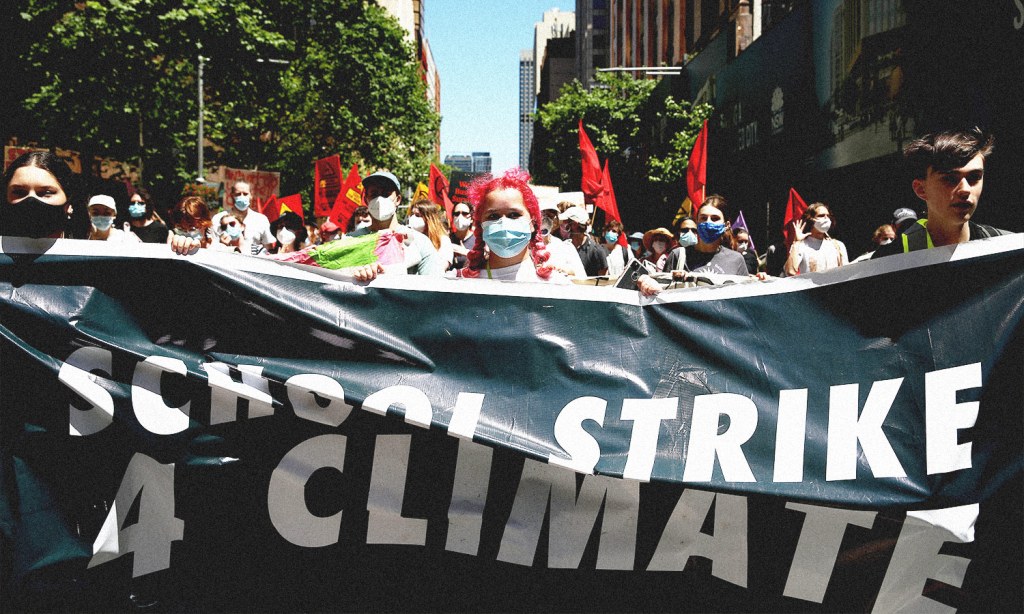Lowering the voting age to 16 will be one of the top issues for the Greens next year as they outline their policy priorities for 2023.
The minor party, who hold the balance of power in the Senate, has said that it wants a voting age reduction bill to be its first submission in the new year. It will be the first private member’s bill introduced in the lower house when Parliament returns in February.
This has long been a policy issue for the Greens, with Western Australian senator Jordan Stelle-John moving to do just that in 2018 with a bill that was ultimately unsuccessful.
This time around it will be Brisbane MP, Stephen Bates, who will be leading the charge for a lower voting age in 2023. He has said that young people deserve a seat at the table as issues like climate change and the cost of living crisis are directly impacting them.
“They have limited ways to hold politicians to account,” he said.
“Students are taking to the streets in their thousands to demand action on the climate crisis. They have no other choice. They’re being left out of the critical decisions that impact them and want their voices to be heard.”
In 2018, Steele-John’s bill would have made voting voluntary for 16-17-year-olds while Bates’ attempt will make it compulsory. However, fines will be waived for those who fail to vote.
Would Lowering the Voting Age be a Good Thing?
Well, it would certainly be a bad thing for the Coalition. The 2022 Australian Election Study, released today, has found that support for the Coalition is at a historic low amongst Gen Z and Millenials.
Just 26% of those born after 1996 voted for the Coalition, while 67% voted for either the Greens or Labor.
“How the Coalition addresses this overwhelming deficit of support among younger generations is perhaps the single biggest question confronting Australian politics,” the study finds.
As many young people report, both major parties, but the Coalition, in particular, have done little to address the issues facing Gen Z and, in large parts, have simply compounded them.
This being said, 18-24-year-olds have the lowest voter enrolment rate of any age group. However, the issues they care about are inherently political in nature – namely, social justice, equality, and the climate – but they don’t have serious political representation at the federal level.
Whether or not we can trust 16-year-olds to make an informed decision is another question. While it’s true that 16-year-old brains are not fully developed, neither are the brains of 24-year-olds. If we tied voting rights to cognitive performance, we’d have to basically cut off anyone over the age of 30, as this is when science tells us that our brains start to decline from their peak.
Australian law in all states and territories holds young people criminally responsible from the age of 10. You can get a job at the age of 13, with some restrictions, get a Medicare card at 15 and start receiving Youth Allowance if you’re living independently. We also grant 16-year-olds the power of sexual consent and the ability to get a learner driver’s permit. 17-year-olds are also permitted to get a provisional licence and join the Australian Defence Force.
All of the above are serious responsibilities, so it seems strange that voting is restricted to people over the age of 18.
“The same arguments used to lower the voting age to 18 in 1973 are relevant today to 16- and 17-year-olds,” Bates has said.
“Australia has previously led the way in the expansion of democracy, being one of the first countries to give women the right to vote, start the secret ballot, and give women the right to run for office before any other jurisdiction. It is time for us to lead the way again.”
Australia is not the only country considering the issue, either. In 2007, Austria became the first nation to allow 16-year-olds to vote in all elections while Brazil, Cuba, and Malta now allow the same. There is also a heated debate about the topic in the UK, as 16-year-olds can vote in Scotland but not in general elections.
New Zealand PM Jacinta Ardern promised to introduce a vote on lowering the voting age to 16 to Parliament after a supreme court ruled that denying teenagers the right to vote was in breach of their human rights.
Related: Jacinta Ardern Was Asked If She Met the Finnish PM Because They’re Both Young and Female
Related: We Went to the Great Barrier Reef to Assess the Damage — Here’s What We Found
Read more stories from The Latch and subscribe to our email newsletter.







